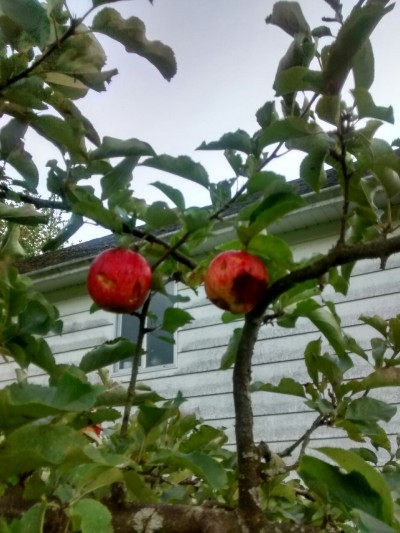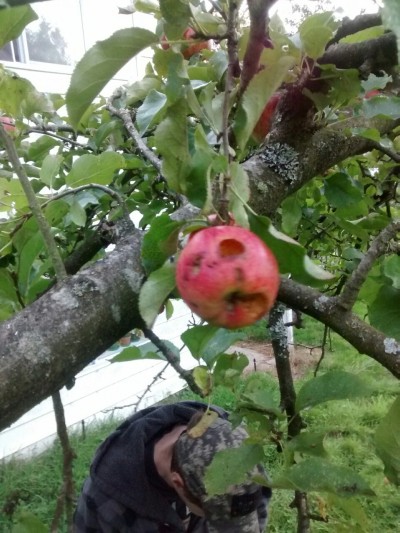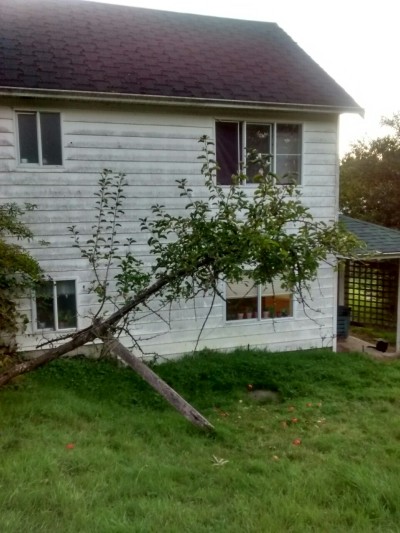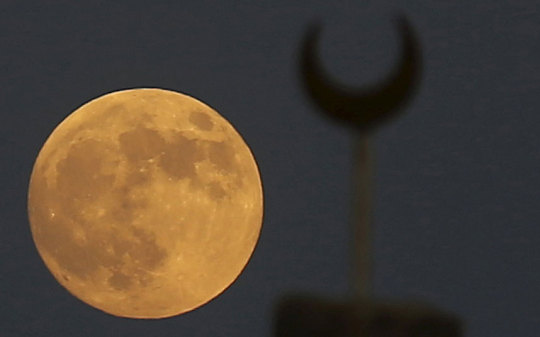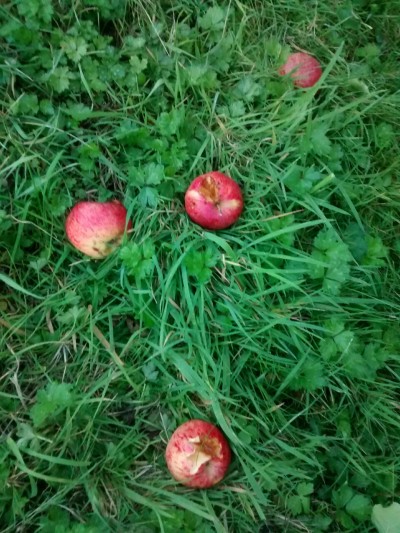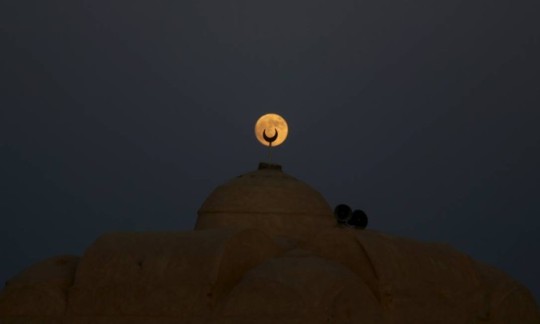{وَإِذْ يَمْكُرُ بِكَ الَّذِينَ كَفَرُواْ لِيُثْبِتُوكَ أَوْ يَقْتُلُوكَ أَوْ يُخْرِجُوكَ وَيَمْكُرُونَ وَيَمْكُرُ اللَّهُ وَاللَّهُ خَيْرُ الْمَاكِرِينَ} [سورة الأنفال: آية 30]
"Remember how the unbelievers plotted against you, to keep you in bonds, or to slay you, or to get you out (of your home). They plot and they plan, but Allah too plans, and Allah is the best of the planners." - The Holy Qur'an, translated by Abdullah Yusuf Ali, Surat al-Anfaal (The Spoils of War), Ayah 30, pg. 109.
A group of important men of the Qureish gathered in Makkah to decide what to do about the Messenger of Allah, and Iblis joined them, pretending to be a Sheikh from the Najd.
Abu al-Bukhtari proposed that they shackle and imprison the Messenger until he died, but the Najdi sheikh pointed out that the Messenger's companions would rescue him from prison, and possibly kill some of the Qureish.
Hishaam bin 'Amr bin Bani 'Aamir bin Lu'ye proposed that they load the Messenger on a camel which would carry him out of Makkah. The Najdi sheikh objected that Muhammad (saws) would capture the hearts of any people he met outside Makkah, and convince them to take Makkah from the Qureish.
Abu Jahil proposed that they choose a young man from every family of the Qureish, give them each a sword, and send them to kill Muhammad (saws), whose blood would then be spread among every member of the tribe. The group of Bani Hashim living in Makkah would not be able to fight the whole tribe of Qureish, so they would accept blood money in compensation for Muhammad's (saws) death, which would not cost any individual member of the Qureish very much.
Iblis, in the guise of the Najdi sheikh, said that this was a very good idea, and the Qureish agreed.
The angel Jibreel appeared to the Prophet (saws), informed him of the Qureish's plans, and told him not to sleep in his bed as he usually did, and Allah permitted the Prophet (saws) to leave Makkah and go to Medinah, as many of the Muslims already had.
The Prophet ordered Ali bin Abi Tolib to sleep in his bed under his cloak, while the Quraish surrounded the Prophet's house and lay in wait for him. The Messenger exited the house and sprinkled dust on the heads of the Qureish, reciting the ayah "And we have put a barrier in front of them and a barrier behind them, and we have covered them up, and they cannot see." (Qur'an 9:35) And the Qureish did not notice the Messenger of Allah.
The Messenger went to Abu Bakr's house, and the two of them left Makkah and arrived at the cave of Thawr (about five miles from Makkah) before dawn.
As for the Qureish, they mistook Ali for the Messenger and remained in ambush around the house where he lay in bed, waiting for him to exit. When it grew light out, the Qureish rose up and seized Ali. They asked him about the Messenger, he replied: I have no knowledge of him. The Qureish struck him and dragged him to the Ka'abah, where they imprisoned him for an hour, whereupon they went to the house of Abi Bakr and asked his little daughter Asma about the Messenger. She said: I don't know, and Abu Jahil slapped her so hard that her earring fell off. Then the Qureish sent out in every direction a request for the Messenger, offering one hundred female camels to anyone who brought the Messenger to them, be he alive or dead.
The Qureish arrived at the entrance to the cave where the Messenger and Abu Bakr were hiding. Abu Bakr feared that the Qureish would capture the Messenger of Allah, and said: If one of them looked at his feet, he would see us.
And the Messenger replied: O Abu Bakr, what you suppose are two, Allah is the third of them. (Soheeh al-Bukhari, 190, 4/189)
(يا أبا بكر ما ظنك باثنين الله ثالثهما) -رواه الإمام البخاري في "صحيحه" (4/189، 190)
The Qureish saw a spiderweb over the entrance of the cave, and said: If he had entered, there wouldn't be a spiderweb here. They left the cave, and the Messenger and Abu Bakr stayed there three nights, then completed their migration to Medinah in safety, although the Qureish were hunting them.
Had the Qureish looked down at their feet, they would not have seen their quarry, even as they didn't see him when he left his house in Makkah and sprinkled dust upon their heads, because the Messenger sought protection in Allah, the best of planners, who made him victorious over the Qureish and over Iblis.
{إِلاَّ تَنصُرُوهُ فَقَدْ نَصَرَهُ اللَّهُ إِذْ أَخْرَجَهُ الَّذِينَ كَفَرُواْ ثَانِيَ اثْنَيْنِ إِذْ هُمَا فِي الْغَارِ إِذْ يَقُولُ لِصَاحِبِهِ لاَ تَحْزَنْ إِنَّ اللَّهَ مَعَنَا فَأَنزَلَ اللَّهُ سَكِينَتَهُ عَلَيْهِ وَأَيَّدَهُ بِجُنُودٍ لَّمْ تَرَوْهَا وَجَعَلَ كَلِمَةَ الَّذِينَ كَفَرُواْ السُّفْلَى وَكَلِمَةُ اللَّهِ هِيَ الْعُلْيَا وَاللَّهُ عَزِيزٌ حَكِيمٌ} [سورة التوبة: آية 40]
"If you don't help (your Leader) (it is no matter), for Allah helped him when the Unbelievers drove him out: he had only one companion, and they were two in the cave. He (the Messenger) said to his companion, "Have no fear, for Allah is with us," then Allah sent down his peace upon him and strengthened him with forces which you did not see, and humbled to the depths the word of the Unbelievers. But the Word of Allah is exalted to the heights, for Allah is Exalted in might, Wise." - Surah at-Tawbah, Ayah 40.
Sources:
تفسير ابن كثير لإسماعيل بن عمر بن كثير القرشي الدمشقي, جزء الرابع, تفسير سورة الأنفال, قوله تعالى " وإذ يمكر بك الذين كفروا ليثبتوك أو يقتلوك أو يخرجوك," دار طيبة 1422 -
- Tafseer Ibn Katheer, Volume 4, Explanation of Surat al-Anfaal, Explanation of His saying "And they plot and they plan, and Allah plans, and Allah is the best of planners."
(http://www.islamweb.net/newlibrary/display_book.php?flag=1&bk_no=49&surano=8&ayano=30) Accessed July 21, 2012.
- تفسير البغوي, للحسين بن مسعود البغوي, جزء الثالث, دار الطيبة.
-Tafseer al-Baghwee, Volume Three, Explanation of Quran 9:30 (http://www.islamweb.net/newlibrary/display_book.php?flag=1&bk_no=51&surano=8&ayano=30)
- ندوات تلفزيونية - قناة اقرأ - سورة الأنفال 008 - الدرس (11-30): تفسير الآيات 30 - 35 ، مكر الله ردّ على كيد ومكر الكفار ـ ما دمنا نتبع سنة نبينا فلن يعذبنا ربنا
لفضيلة الدكتور محمد راتب النابلسي بتاريخ: 2009-07-10
- Transcript of a lecture given by Dr. Muhammad Ratib an-Nablisi on the television channel 'Iqra,' 10/07/2009.
(http://www.nabulsi.com/blue/ar/art.php?art=8455&id=189&sid=799&ssid=808&sssid=1410)
- Video lecture: Sheikh ash-Shu'arawi explains Quran 9:30.
(http://www.youtube.com/watch?hl=en&v=kbuV0UzvuE8&gl=US)
السيرة النبوية, لفضيلة الشيخ محمد متولي الشعراوي, دار النموذجية, بيروت, 1422
- The Biography of the Prophet, Sheikh Muhammad Mutawalli ash-Shu'arawi, Dar al-Namuthijiyyah, Beirut, 2002.
